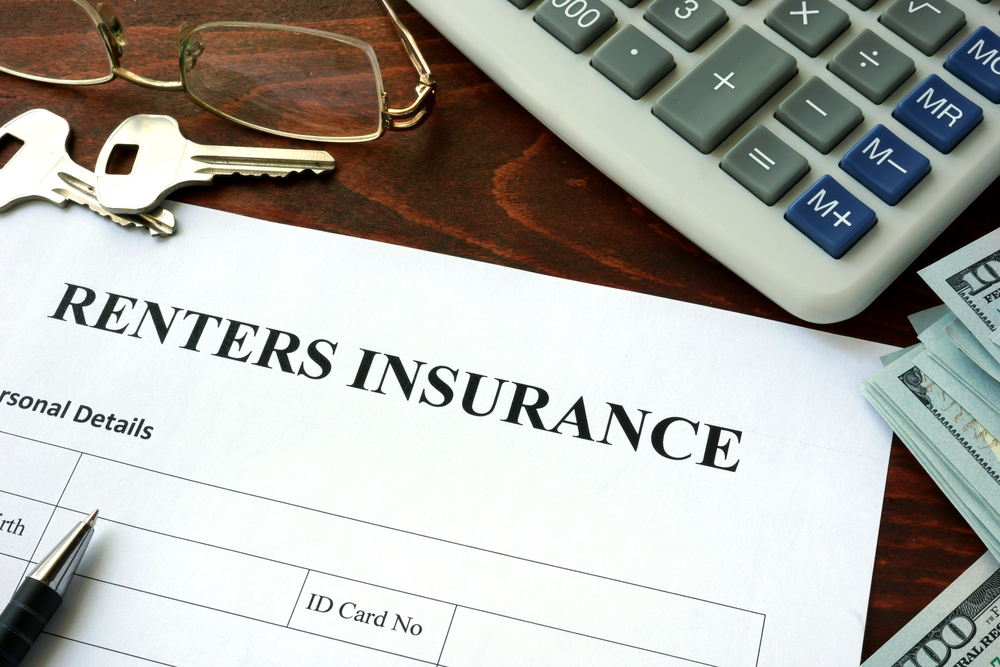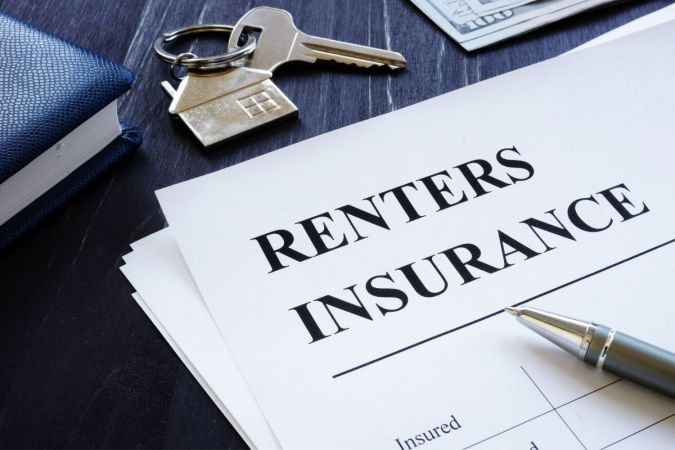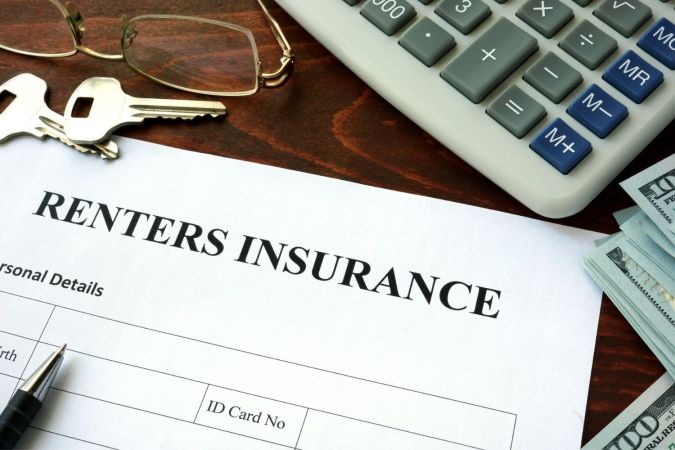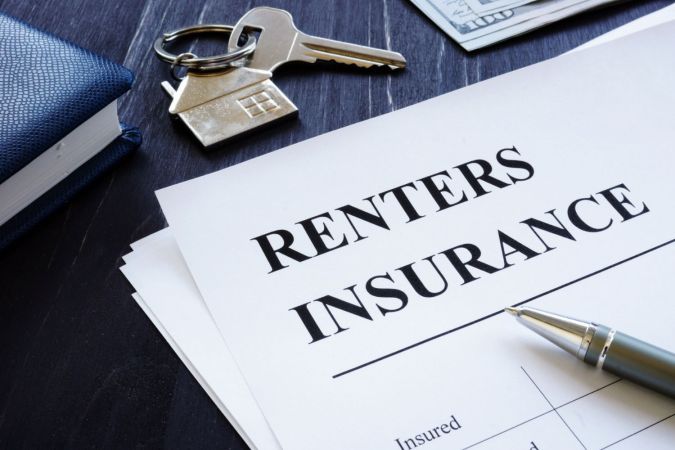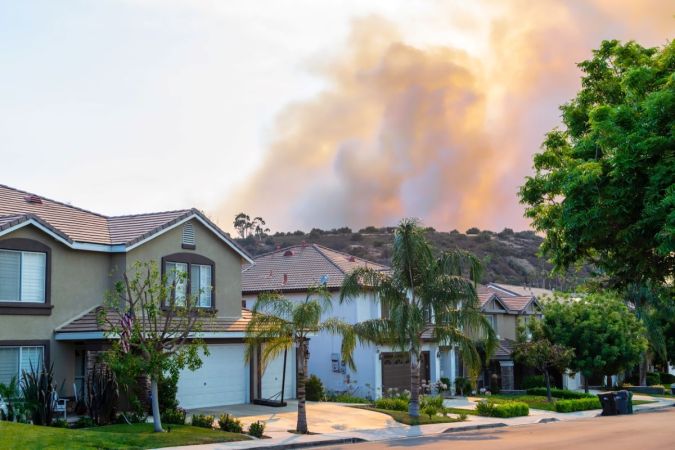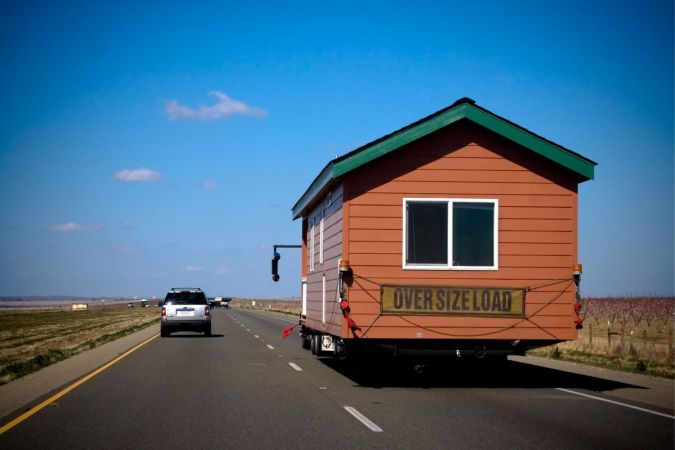We may earn revenue from the products available on this page and participate in affiliate programs. Learn More ›
Q: I’ve just signed a new lease for an apartment, and the property owner explained that the lease agreement requires that I purchase renters insurance. Why is this something I need? What does it cover?
A: It can be frustrating to find an apartment you love that fits into your budget only to learn that you’ll need to spend extra money on renters insurance. Furthermore, you may not have realized that as a renter, insurance was even an option for you. The first and most immediate answer to your question is that you need renters insurance because the property owner requires it. It’s a property owner’s prerogative to require that their tenants carry insurance, and by putting this requirement in the lease, they protect themselves from having to pay damages for each of their tenants’ belongings in case of a robbery, fire, or natural disaster. In fact, without insurance, renting out apartments would be a huge financial risk for the property owner, so it’s understandable that they want you to purchase your own coverage.
There’s another reason you may need renters insurance: Since the property owner’s insurance policy won’t pay for tenants’ loss of property if a catastrophic event should occur, then you’ll have to. You probably own more than you thought you had. Could you afford to buy it all again if it were damaged or destroyed? That’s what renters insurance is designed for; similar to homeowners insurance, it protects you financially from disasters affecting your home and speeds up the replacement and reimbursement process in the aftermath. Regardless of whether the lease requires it, insurance for rented homes is a good option: Without insurance, rental homes and apartments and their leaseholders are left vulnerable.
Renters insurance covers any damage or theft of personal property.
You’ve probably heard about homeowners insurance, which will financially cover repair and replacement of the building, grounds, and contents of a home if they’re stolen or damaged in a covered event. Renters insurance is very similar in concept, except it only covers the contents of this apartment or rented house—the building and grounds are the responsibility of the property owner, so they will carry a commercial insurance policy to cover the structure and may carry a home warranty policy to cover the systems and appliances. Insurance for renters will cover the damage or destruction of your personal items when they are ruined as a result of an event covered in your policy. Covered events can include fires, wind damage, explosions, smoke damage, collapse, theft, vandalism, and water damage from a sudden event, like a burst pipe. You will pay an annual premium depending on how much coverage you feel you need (usually based on the size of the apartment and your specific possessions, among other things). If a covered event occurs and you need to file a claim, you’ll first pay a deductible, which is stipulated in your contract, before the coverage can begin, and then you’ll be reimbursed up to the stated limit of your policy. This will make it easier to have your items repaired or to replace them without taking a large financial hit.
Renters insurance covers personal liability and medical payments should a guest be injured on your property.
In addition to property coverage, renters insurance also provides coverage for your liability in case of injury. If someone is injured in your home, or if you accidentally injure someone (at home or elsewhere) and the injured person chooses to sue you for damages or medical expenses, most renters insurance policies provide a standard $100,000 in liability coverage with an option to upgrade. Especially if you’re the target of a lawsuit, this coverage can be the difference between writing a check to cover your deductible and losing all your savings and having to take personal loans to cover liability losses. It’s not something that most people think about and, as with most insurance, you hope you’ll never need to use it, but if you need it you’ll be grateful that you have renter insurance to protect your finances.
Renters insurance covers living expenses as a result of temporary relocation.
Another element of renters insurance coverage that most people don’t consider is temporary housing costs. If there’s a fire or significant damage to your rental unit, you may have to live somewhere else while repairs and rebuilding occur. Staying with a friend or family member is inexpensive but may be inconvenient, and paying for a hotel or second short-term rental can cause costs to mount up quickly. Renters insurance policies take the sting out of having to temporarily relocate by covering the cost of a living space, some of your food, and other living expenses while you have to be out of your home.
Damage and loss due to certain events, like floods and earthquakes, is not covered.
Renters insurance is not all-encompassing. While you’ll be covered for most natural disasters (including volcanoes and lightning), there are some exclusions. Damage caused by earthquakes and floods is not covered. This is because the damage those types of events cause is so costly and localized that it isn’t an effective business practice for insurance companies to cover it and spread the cost of the payouts across all their customers. Earthquake coverage can sometimes be added to a policy, but flood insurance should be purchased separately from either the National Flood Insurance Program or a private insurance company that offers flood insurance. Your landlord will often require flood insurance if you live in a flood-prone area, but it’s worth looking into on your own as well.
Damage that is caused by war or terrorism used to be included in a standard policy, but many policies have started excluding these events from coverage. You’ll want to read your policy carefully to see if it covers these events or not.
Some events are covered, but with limits. If your dog bites someone at the park, your renters insurance will cover your liability—the first time. If it happens a second time, however, your pet may be excluded from the coverage altogether unless you purchase additional pet coverage. Some breeds that are traditionally thought of as aggressive (whether it’s fair or not) are excluded from coverage entirely, so check with your carrier so you know if your canine is covered.
Finally, if you run a business out of your home, the products and equipment belonging to the business are not covered, even if the event that precipitates the damage is normally considered a covered event. Those items are not considered personal property; they belong to the business and must be insured as such.

Renters insurance can offer supplementary coverage, such as check forgery and debris removal.
In addition to paying to replace your couch and your clothes, renters insurance provides some additional benefits. In this age of identity theft, it’s comforting to know that renters insurance will generally cover credit card fraud and check forgery, so if a thief steals your records or cards and tries to use them, you won’t be held liable. This is a bigger benefit than you might think; hiring an attorney to combat identity theft and credit use can be very expensive, so having backup through your renters insurance policy is a wonderful financial cushion. Many policies will also cover items that don’t belong to you but were damaged in a covered event. For example, if your coworker’s laptop is damaged in a fire in your kitchen, your renters insurance will likely cover the replacement cost.
An often-overlooked cost in the cleanup after a covered event is hauling away the debris left behind. Fires, burst pipes, and trees that plunge through the roof can leave a tremendous amount of building materials and mess, and if there’s been a fire, you may be confronted with sludge from the water and soot. While the landlord’s insurance may cover some removal, the removal of your personal items may be up to you, and it’s a heavy and sometimes dangerous task. Renters insurance will cover the cost of hiring a professional to haul away the debris or the cost of a dumpster if you prefer to do it yourself but don’t have the means to dispose of it.
Renters can add to their policies to cover specific events that aren’t typically covered.
All insurance policies have limits to their coverage, but you can sometimes increase the overall coverage limit by paying a higher premium. You can also add endorsements to cover high-value items such as jewelry, artwork, instruments, or collector’s items that will be valued separately and will be listed individually on your policy with stated limits.
Beyond the coverage limits of the policy, however, is the limitation on the type of events that are covered. If you live in an area where earthquakes are common, you may choose to ask if an endorsement for personal property loss and loss-of-use coverage can be added to your policy. Because you don’t own the building and can’t make decisions about how earthquake-safe the structure is, many renters insurance companies will offer this endorsement to protect you. Some renters insurance carriers may also offer extended protection for identity theft recovery as an endorsement as well.
If you run a small business out of your apartment, the exclusion of business coverage on a standard renters insurance policy should be of significant concern to you. If the equipment you use for this business, such as audio equipment, crafting equipment, or a laptop, is damaged in a covered event, this equipment will be excluded from your payout. Purchasing a separate endorsement for an at-home business can protect your income and livelihood if you work out of your home.
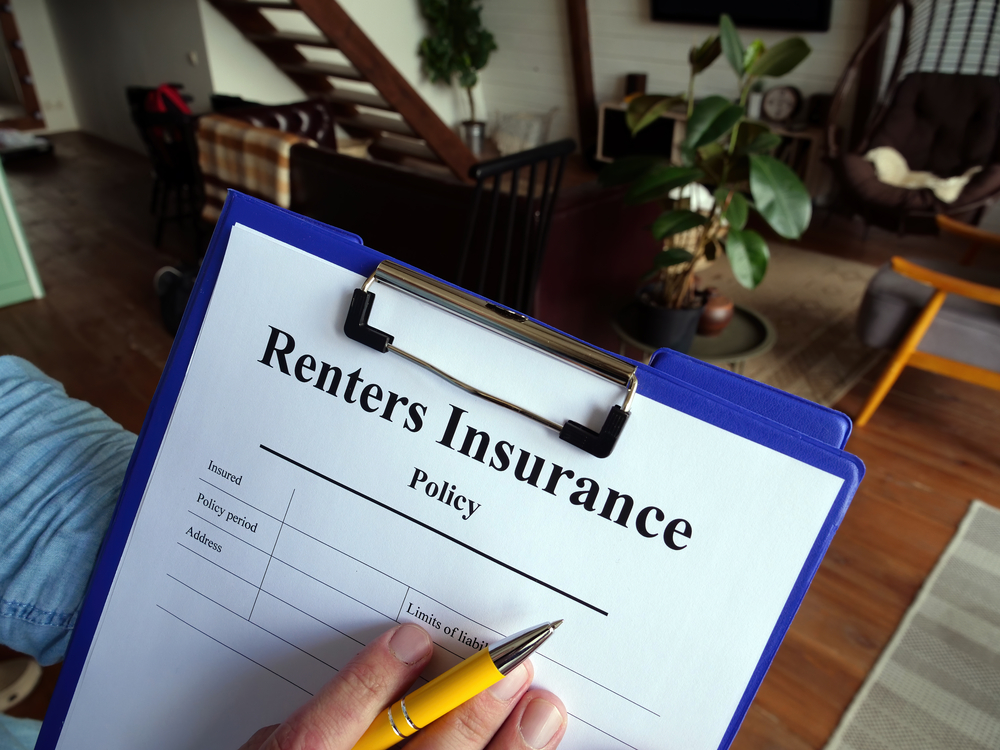
If you live with a roommate, your renters insurance policy does not cover them and their property.
While there are some exceptions, most renters insurance policies only cover one individual or family unit, so if you share an apartment with a friend or roommate, you can’t depend on your roommate’s policy to protect you and your belongings. Renters will each need their own policy to cover their own belongings and liability. Even if your lease doesn’t specify that all renters need their own policy, you’ll want to maintain separate policies to avoid confusion and potential claim rejection if there’s an event that causes you to file a claim.
Having renters insurance provides peace of mind when unexpected events occur as well as financial protection.
Losing your belongings to theft or disaster is emotionally overwhelming, and your thoughts will probably be scrambled for a bit while you recover from the experience and sense of loss. Struggling to figure out how you’ll pay to replace your items or cover the cost of living elsewhere will add to the emotional and financial toll of the original event. Collect several renters insurance quotes: Insurance for a rental home or apartment is not as expensive as you might expect, and it can protect your finances and give you peace of mind so you can focus on the logistics of rebuilding your home and not on how you’ll afford to do so.

